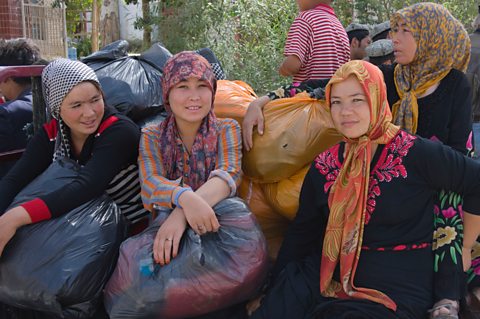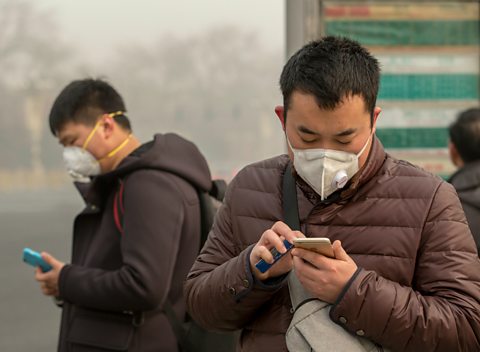What are the political problems for the CCP?
As well as dissidents, the CCP faces other challenge to its authority.
Hong Kong
Hong Kong (HK) is governed differently from the rest of China. Until 1997, HK was ruled by the United Kingdom before being handed back to China. Under UK rule, the people of HK had experienced democracy, including elections for their leaders.
On Hong KongÔÇÖs return to China, the CCP decided to carry out a policy of "one country, two systems". This policy allowed for greater democracy in HK than elsewhere in China. However, if the people of HK are allowed greater democracy it is difficult to deny the rest of China the same political freedoms.
In Hong Kong there should be a freer press, there are opposition parties and, in theory, political protest is legal. Half of the government is non-communist although the Chief Executive is approved by the CCP (currently John Lee).
Protests
Protests have taken place in Hong Kong in 2019 and 2020 over a bill put forward by the CCP that would see Hongkongers sent to China to face trial. They argued that this would be used to target activists and journalists. Hundreds of thousands of people protested. Two protesters were killed.
In 2020, the NPCSC (China's law-making body) passed a new national security law for Hong Kong which criminalises any act of secession, subversion, terrorism, or collusion with foreign forces. The government in Beijing has the power to say how this law should be interpretted. This suggests they can use it to prevent or punish protest.
In 2021, China changed Hong Kong's electoral rules, cutting the number of directly elected seats in parliament by nearly half, and introducing vetted of all potential candidates by a pro-Beijing committee to ensure their loyalty to the mainland.
A national security law passed in 2020, led to the arrest of Albert Ho, a 71 year old lawyer and prominent pro-democracy politician in Hong Kong. He was accused of trying to undermine the goverment.
Who is the Uyghur population?
In the mineral rich province of Xinjiang in the far west of China, the majority of people are from minority groups rather than China's majority Han population.
The Muslim Uyghurs account for 45% of the population. Anti-Han and separatist sentiment rose in the region of Xinjiang in the 1990s.
By 2021, it is estimated that the Chinese authorities have arbitrarily detained as many as one million Uyghurs and other minorities in 300 to 400 facilities in Xinjiang, in the largest internment of an ethno-religious minority since World War Two.

The Chinese authorities blame a minority of Uyghurs for causing unrest. They claim those involved are terrorists who are using violence as a way of gaining independence from China.
Uyghurs say they resent the wealth and influence that the generally better off Han Chinese enjoy. They claim most of their protests are peaceful but the authorities use violence as a way of keeping any protest in check.
Since 2014, the Chinese authorities have introduced a "strike hard" campaign targeting any Uyghurs whom the Chinese government claim are refusing to co-operate with the authorities.
In 2018, the UN Committee on the Elimination of Racial Discrimination claimed that China had interned up to a million Uyghers in "re-education" camps.
The camps are designed to promote the Chinese language and Chinese values and traditions, however the UN Committee report states that there have been claims of physical and psychological torture and a widespread suppression of Islamic culture.
According to human rights groups, China has held more than one million Uyghurs in ÔÇ£re-education campsÔÇØ. The Chinese state say they have set up the camps to ÔÇÿtransformÔÇÖ Uyghurs by teaching them about Chinese language, values and traditions.
However, people are held against their will, have no access to lawyers and are punished if they donÔÇÖt cooperate. In 2022, the ┤¾¤¾┤½├¢ found police files that described a ÔÇÿshoot-to-killÔÇÖ policy for anyone trying to escape.
Growing middle class in China

China's emerging middle class (estimated to reach 550 million by 2022) have been broadly supportive of the Communist Party in recent years. Many of these people have benefited greatly from social/economic change. However, some have begun to be more critical of the political system.
With growing evidence of environmental pollution, widespread corruption in government and more recently, decreases in living standards in tough global economic times, a greater number of middle class people have taken to the internet and social media to question the way the country is run.
This criticism is a concern for the CCP. The middle class are regarded as their key supporters. Many are low-ranking members of the Communist Party. President Xi has therefore demanded changes to improve China, including cleaning up the environment and cracking down on corruption in government.
Corruption in the CCP
One of the biggest threats to the leadership of China is when CCP officials are found to be corrupt. In a one-party state there is not the same scrutiny of government.
As China has become wealthier, some individuals have taken advantage of their positions within the CCP to illegally reward themselves, families or friends.
When President Xi took over in 2013 he was determined to improve the image of the party. He ordered a crackdown on corruption.
In 2021, Meng Hongwei, the first Chinese head of Interpol (The International Criminal Police Organisation) was sentenced to 13.5 years in prison as part of President Xi JinpingÔÇÖs crackdown on corruption.